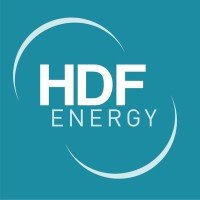Chesapeake testing Hydrogen Blending; Portugal establishes hydrogen consortium
Blending hydrogen with natural gas provides even lower carbon impacts without sacrificing natural gas quality.

Chesapeake Utilities Corporation has blended hydrogen with natural gas to power its Eight Flags Energy Combined Heat and Power (CHP) plant in Nassau County, Florida, US.
In a strategic effort to actively support and expand the sustainability efforts of the communities it serves, Chesapeake Utilities is working to develop lower-carbon energy sources. The CHP facility provides a unique opportunity to assess the feasibility and operating characteristics of blended hydrogen and natural gas in a contained and closely monitored industrial setting.
The Eight Flags CHP hydrogen test program was intended to refine the operational practices and requirements for safe transportation and injection of hydrogen into a distribution system.
Chesapeake Utilities’ Marlin Gas Services unit transported hydrogen to the Chesapeake-owned distribution system at the CHP site. An interconnect point was modified and isolated from other distribution customers, receiving the hydrogen directly from the specialised Marlin tankers. The hydrogen was blended and delivered to the CHP facility through existing steel service mains.
Minor modifications at the CHP plant were completed to enable the turbine to run on a 4% hydrogen blend. The existing turbine is scheduled for a routine change-out this year; the replacement turbine will have the capability to operate with a higher percentage of hydrogen.
Portugal cement and glass companies establish a consortium on hydrogen
A consortium of Portuguese companies has announced an investment of €100 million to establish Nazare Green Hydrogen Valley (NGHV). It aims to decarbonise industries through the use of sustainable energy.
The consortium is led by Portugal-based renewable gas producer Rega Energy and partners include cement companies Cimpor and Secil and glassmakers BA Glass, Crisal and Vidrala. Water utility Aguas do Centro Litoral (ACL) and natural gas distribution company GGND also participate in the consortium.
The consortium will serve the cement, waste, glass, fertilisers and ceramics industries and aim to produce low-carbon products using clean energy produced in Portugal.
The infrastructure will include a dedicated electrical grid, integrating a solar power plant to produce electricity from renewable sources that will feed the green hydrogen production facility.
